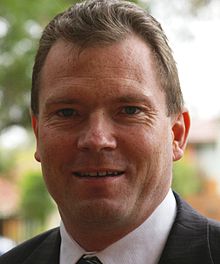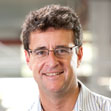2017 Lord Mayoral Election Forum
6pm-8pm August 31st.
Newcastle City Wests
(formerly Panthers & The Workers Club)
Independent think-tank The Newcastle Institute, will be conducting a public forum for the coming Lord Mayoral Election on Thursday August 31st, in the lead-up to the Local Government Elections
The Institute’s high-quality forums before local, state and federal elections have become a respected tradition in Newcastle in the last decade.
There are four groups contesting the election with Councillor and Mayoral candidates. The main attention will be on the Lord Mayoral candidates, who have all agreed to participate.
The four Lord Mayoral candidates from Groups contesting the election are Nuatali Nelmes (Labor); David Compton (Liberal); Therese Doyle (Greens); and Kath Elliot (Independent Group).
This forum will be modelled on the ABC’s popular Q&A program. The moderator for the night will be journalist Paul Scott from the University’s School of Communication. As with previous events, Dr Bernie Curran shall be Master of Ceremonies.
Each candidate will be invited to give a short policy speech, and then respond to questions covering a range of topics about the future of Newcastle.
The public is invited to submit questions through the Newcastle Institute’s website. A Panel representing a range of community interests will select questions to ensure there is good balance, and to make sure the forum is fair to all the candidates.
Newcastle Institute spokesperson Robyn Considine said “Political meetings in Australia have become stage-managed and scripted – and boring. The Newcastle Institute’s events are now unusual in Australian politics. This meeting will bring together politicians from across the spectrum in a genuine face-to-face contest. We see this as demonstrating yet again that Newcastle is a city of innovation in many facets of public life”.
The Event is open to any member of the general public, subject only to requirements for appropriate behaviour during the meeting.
The Newcastle Institute requests a $5 donation on entry to assist us with venue hire costs.
If you’d like to submit a question for the forum then click below
Questions will be accepted up until 5pm on 29 August, 2017


 The Newcastle Institute, is hosting a ‘Conversation’ with the Honourable Nathan Rees, former Premier of NSW. This July event is part one of a two part series featuring conversations with politicians.
The Newcastle Institute, is hosting a ‘Conversation’ with the Honourable Nathan Rees, former Premier of NSW. This July event is part one of a two part series featuring conversations with politicians. Post-truths, alternative facts, fake news. These terms are thrown about in the traditional and social media, by politicians and by people wanting to discredit statements they disagree with. The post truth era is described as when objective facts and scientific evidence are less influential than a narrative and appeals to emotion and personal beliefs. In a democratic society with freedom of speech at its core, how do we distinguish facts from fiction and navigate the truth in this post-truth era?
Post-truths, alternative facts, fake news. These terms are thrown about in the traditional and social media, by politicians and by people wanting to discredit statements they disagree with. The post truth era is described as when objective facts and scientific evidence are less influential than a narrative and appeals to emotion and personal beliefs. In a democratic society with freedom of speech at its core, how do we distinguish facts from fiction and navigate the truth in this post-truth era? Recent events in South Australia, Tasmania and Victoria have shown that dramatic changes are needed if we are going to have a secure, reliable, cheap and sustainable power supply.
Recent events in South Australia, Tasmania and Victoria have shown that dramatic changes are needed if we are going to have a secure, reliable, cheap and sustainable power supply. Assoc. Professor Steven Weller is from the University’s School of Electrical Engineering, where he teaches on sustainable energy. He will discuss the current problems with Australia’s National Electricity Market, and look at the technological and commercial realities of renewable technology. Could Tasmania become the ‘Battery of Australia’? He will look at the numbers.
Assoc. Professor Steven Weller is from the University’s School of Electrical Engineering, where he teaches on sustainable energy. He will discuss the current problems with Australia’s National Electricity Market, and look at the technological and commercial realities of renewable technology. Could Tasmania become the ‘Battery of Australia’? He will look at the numbers. He will be joined by Professor Behdad Moghtaderi, from the Newcastle Institute of Energy Research. The Professor leads a team of researchers that have developed ‘world-first’ power storage and management technologies. In two years they aim to have a fridge-sized power plant that could provide a stable and secure power supply to a household. It is an example of the promise of the high-end science and engineering being performed right here in Newcastle.
He will be joined by Professor Behdad Moghtaderi, from the Newcastle Institute of Energy Research. The Professor leads a team of researchers that have developed ‘world-first’ power storage and management technologies. In two years they aim to have a fridge-sized power plant that could provide a stable and secure power supply to a household. It is an example of the promise of the high-end science and engineering being performed right here in Newcastle.
 Newcastle was among the first regions to roll out the Primary Ethics program in 2011. What have we learned since then?
Newcastle was among the first regions to roll out the Primary Ethics program in 2011. What have we learned since then?